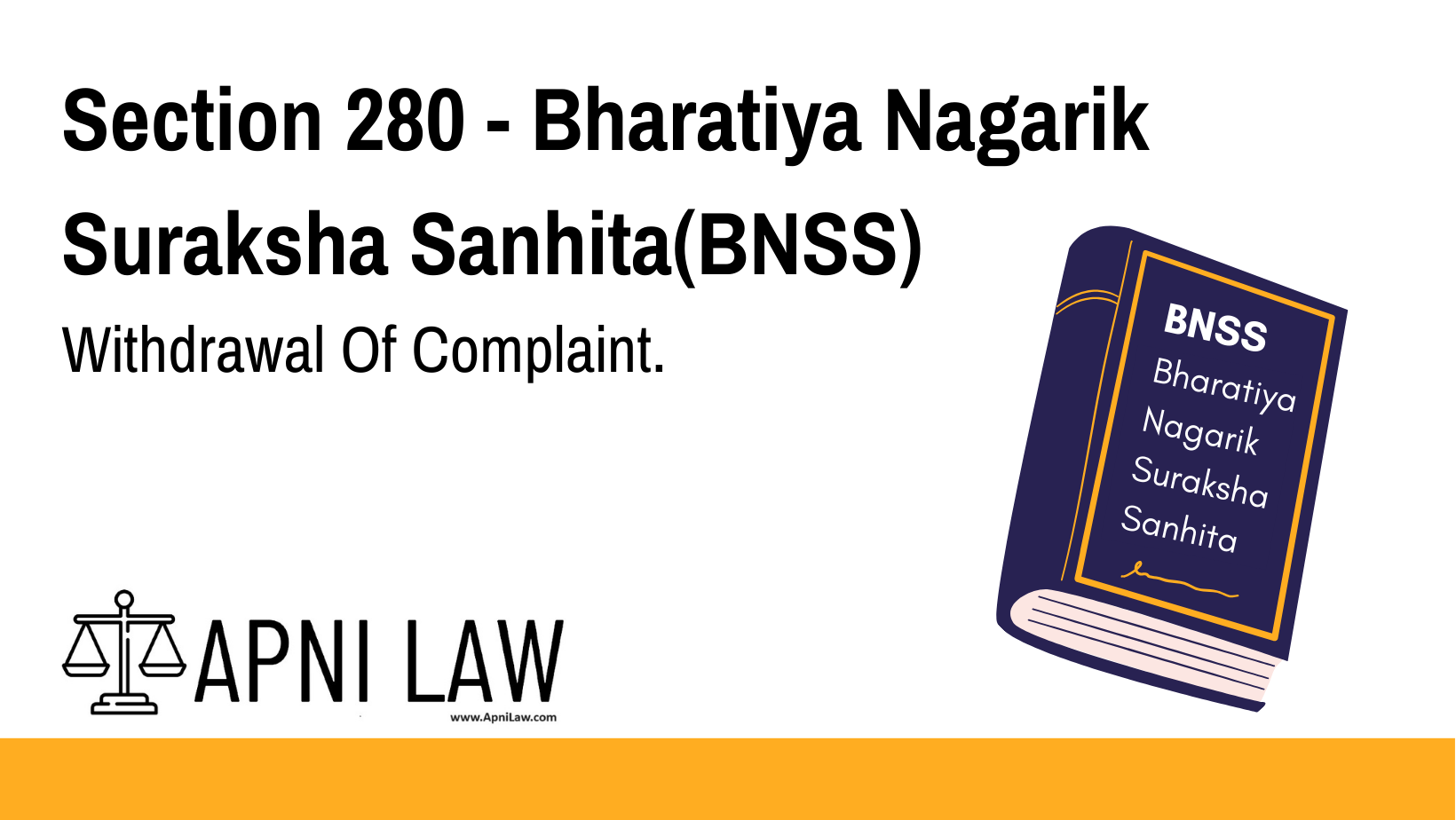Bharatiya Nagarik Suraksha Sanhita (BNSS) – Section 280
Code: Section 280 of the Bharatiya Nagarik Suraksha Sanhita (BNSS)
Explanation:
This section deals with the withdrawal of complaints in criminal cases under Chapter 28 of the BNSS (which deals with offences against the public tranquility). It lays down the conditions under which a complainant can withdraw their complaint before a final order is passed in the case.
According to Section 280, the Magistrate can permit a complainant to withdraw their complaint if:
- The complainant satisfies the Magistrate that there are sufficient grounds for permitting withdrawal.
- The withdrawal is against all or any of the accused, if there are multiple accused.
Upon granting permission for withdrawal, the Magistrate shall acquit the accused against whom the complaint is withdrawn.
Illustration:
Imagine a situation where a person files a complaint alleging that another person has instigated a riot. During the trial, the complainant realizes that they had made a mistake and that the accused person was not actually involved in the riot. In this case, the complainant can approach the Magistrate and explain the situation. If the Magistrate is satisfied with the grounds for withdrawal, they can permit the complainant to withdraw their complaint. The Magistrate would then acquit the accused person.
Common Questions and Answers:
Can a complainant withdraw their complaint after a final order is passed?
No, this section only applies before a final order is passed. Once a final order is passed, the complaint cannot be withdrawn.
What are sufficient grounds for withdrawal?
The grounds for withdrawal should be genuine and must convince the Magistrate that the complainant has a valid reason for wanting to withdraw the complaint.
What happens to the accused after withdrawal?
The accused is acquitted, which means that they are officially declared not guilty of the charges against them.










